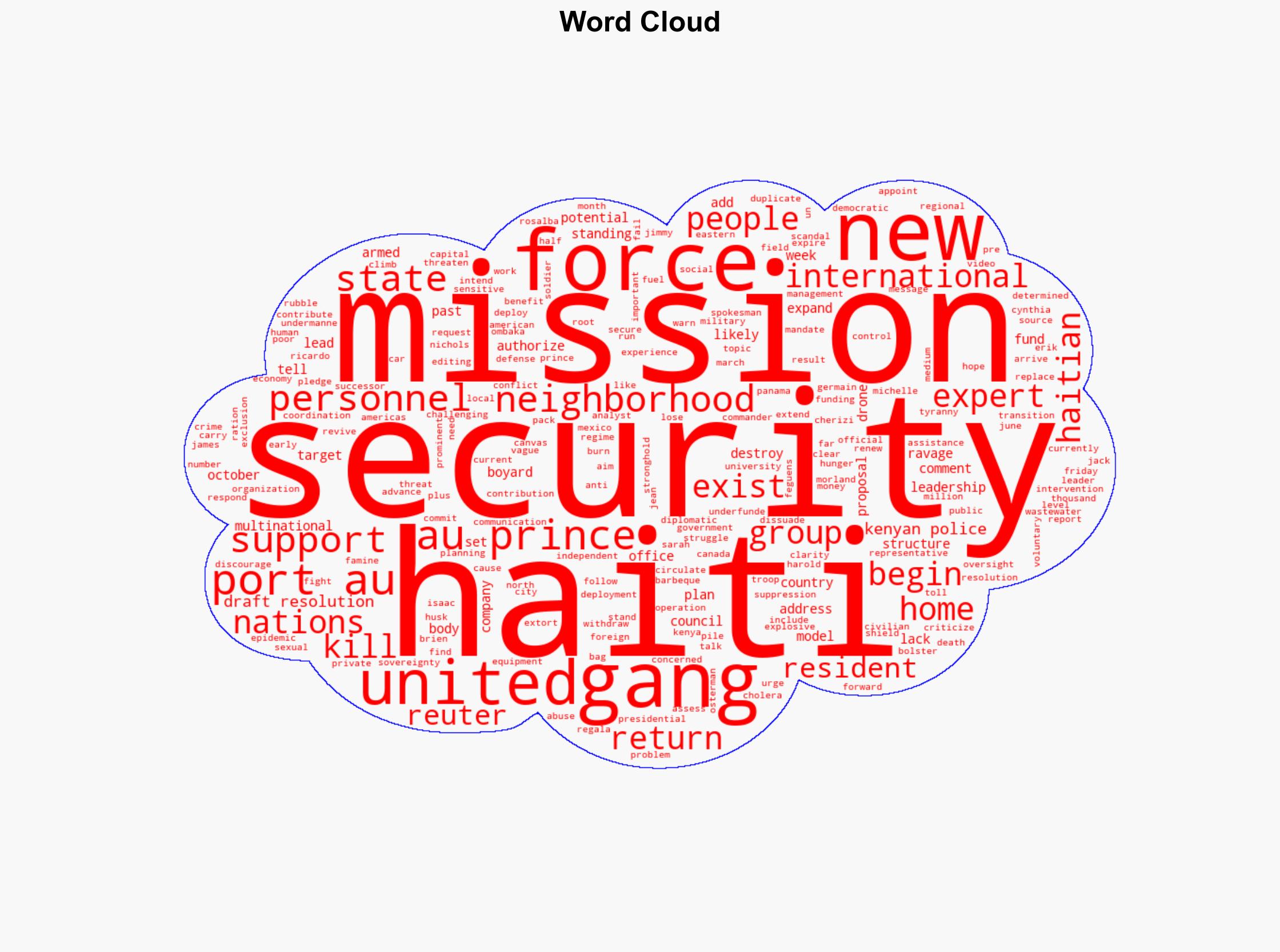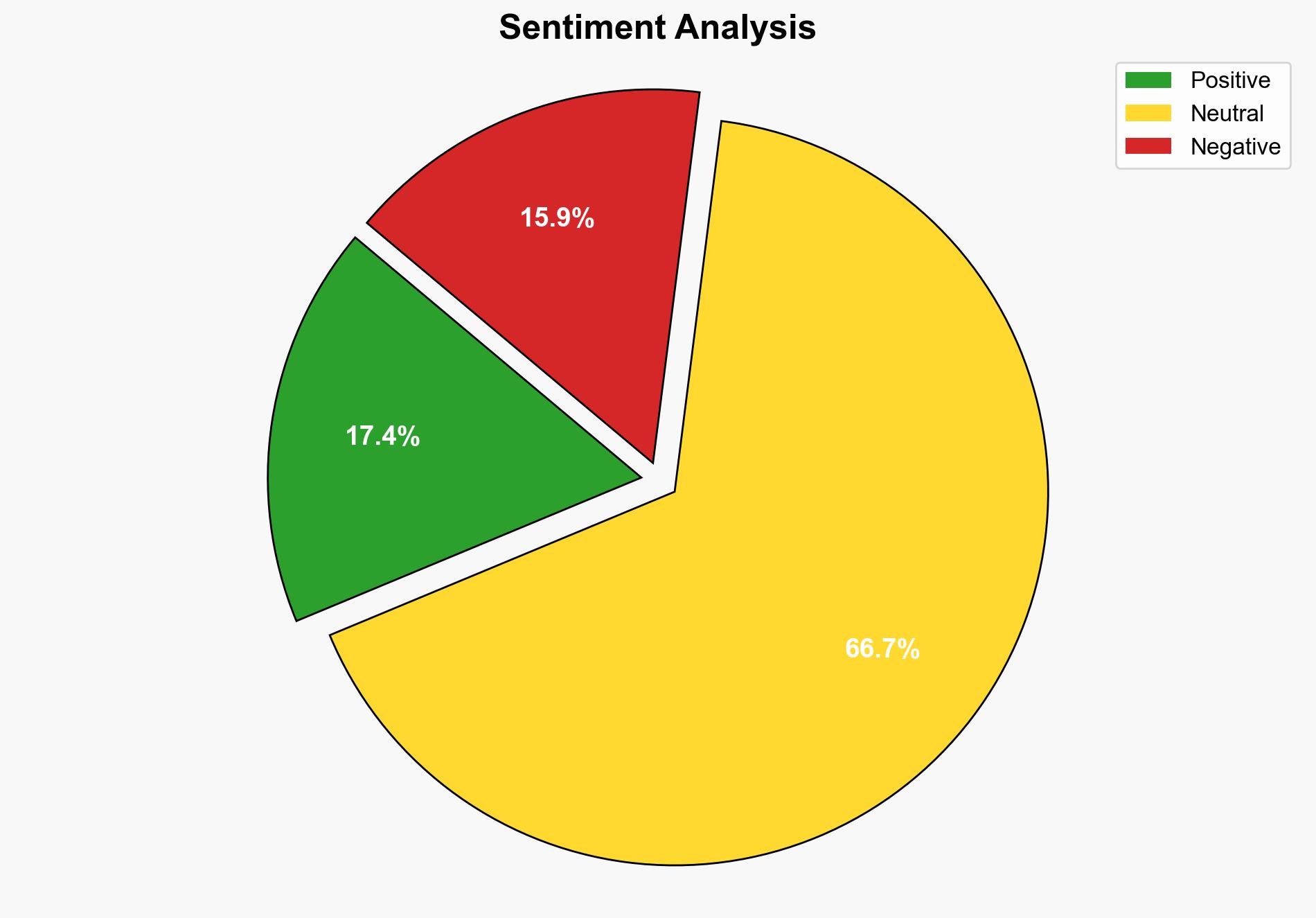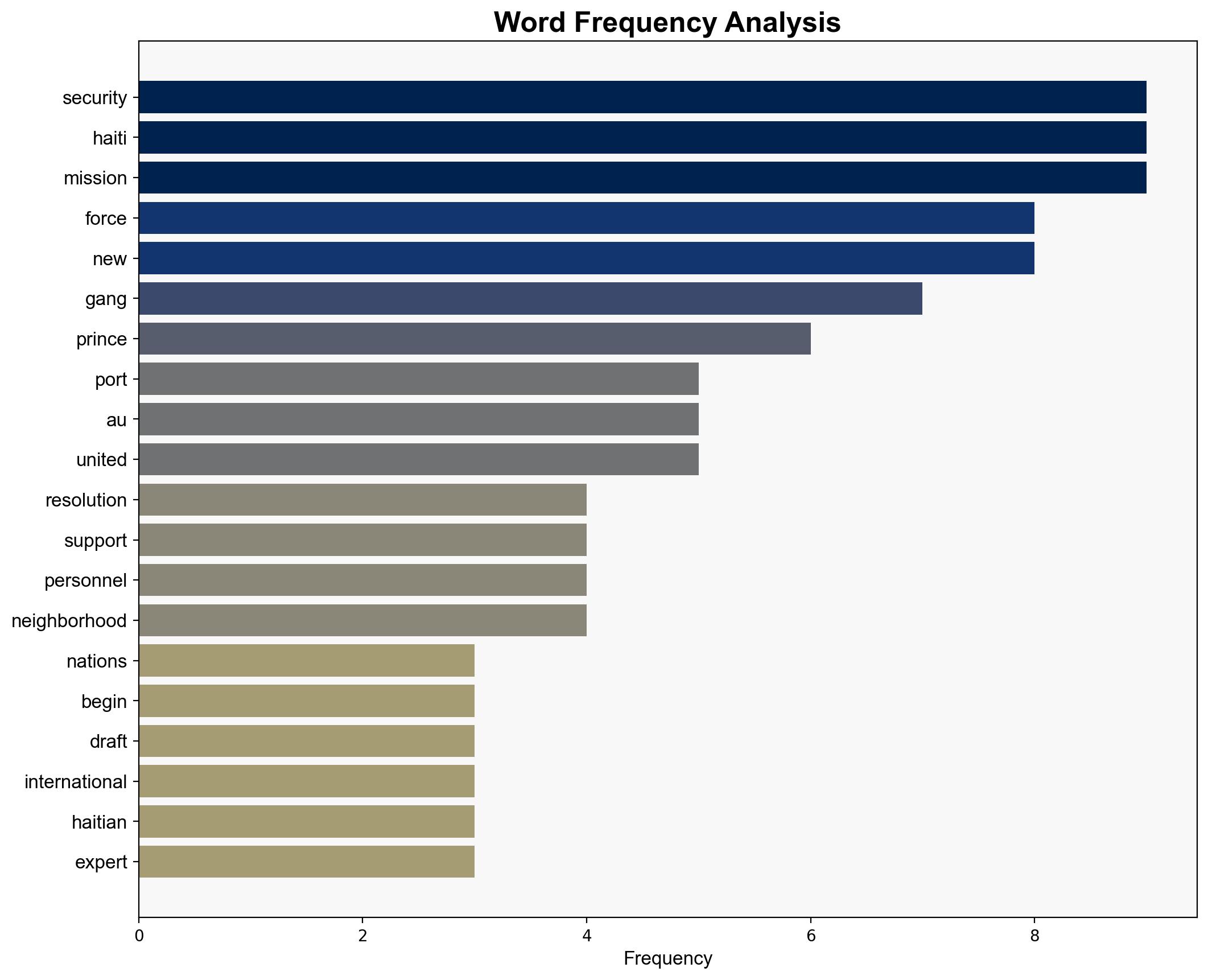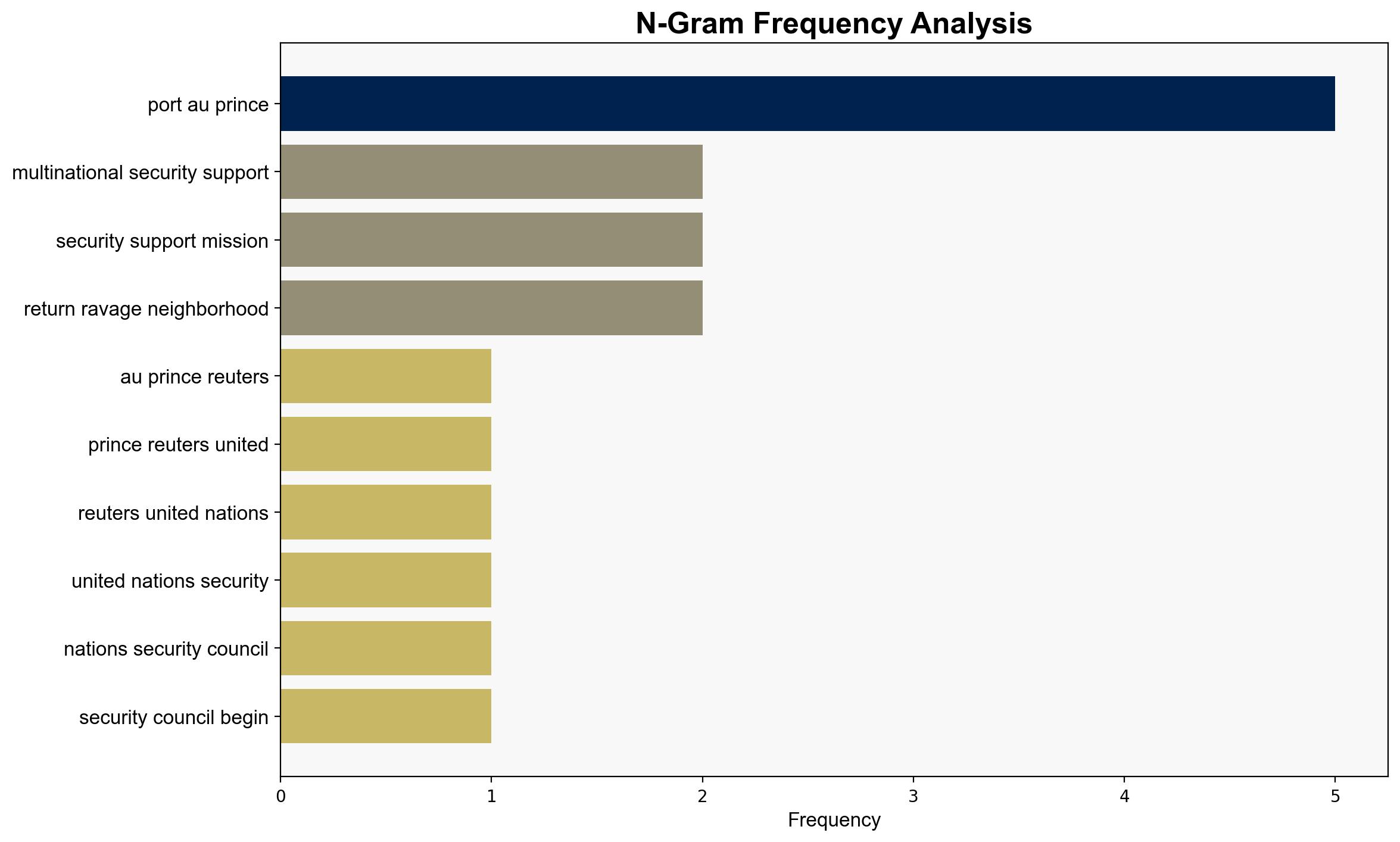UN considers bigger security force as gangs extend grip on Haiti – The Star Online
Published on: 2025-08-30
Intelligence Report: UN considers bigger security force as gangs extend grip on Haiti – The Star Online
1. BLUF (Bottom Line Up Front)
The most supported hypothesis is that the proposed UN-backed security force will face significant challenges in effectively stabilizing Haiti due to inadequate funding, unclear leadership, and potential sovereignty issues. Confidence level: Moderate. Recommended action: The UN should ensure clear funding mechanisms, establish a transparent leadership structure, and engage with local stakeholders to address sovereignty concerns.
2. Competing Hypotheses
1. **Hypothesis A**: The new UN-backed security force will successfully stabilize Haiti by effectively suppressing gang activities and restoring order.
– **Supporting Evidence**: The draft resolution aims to transition to a more robust force with international support, potentially increasing resources and manpower.
2. **Hypothesis B**: The new security force will struggle to achieve its objectives due to inadequate funding, unclear leadership, and potential resistance from local entities.
– **Supporting Evidence**: Concerns about funding, leadership, and sovereignty issues are raised by experts, indicating potential operational and political challenges.
Using ACH 2.0, Hypothesis B is better supported due to the significant emphasis on structural and funding challenges in the source text.
3. Key Assumptions and Red Flags
– **Assumptions**: The international community will provide sufficient voluntary contributions; local entities will cooperate with the new force.
– **Red Flags**: Lack of a clear funding source and leadership structure; potential for local resistance due to sovereignty concerns.
– **Blind Spots**: The impact of past foreign interventions on local perceptions and potential unintended consequences of military actions.
4. Implications and Strategic Risks
– **Implications**: Failure to stabilize Haiti could lead to increased regional instability and humanitarian crises.
– **Strategic Risks**: Escalation of violence if gangs resist; potential backlash against foreign intervention; further erosion of local governance structures.
– **Cascading Threats**: Economic collapse, increased refugee flows, and potential for neighboring countries to be affected.
5. Recommendations and Outlook
- **Mitigation**: Establish a clear funding and leadership plan; engage with local leaders to ensure buy-in and cooperation.
- **Opportunities**: Strengthen regional partnerships to share the burden of stabilization efforts.
- **Scenario Projections**:
– **Best Case**: Successful stabilization leads to improved security and economic conditions.
– **Worst Case**: Increased violence and instability due to inadequate intervention.
– **Most Likely**: Partial success with ongoing challenges due to structural and political issues.
6. Key Individuals and Entities
– Jimmy “Barbecue” Cherizier
– Ricardo Germain
– Jack Ombaka
– James Boyard
– Erik Prince
7. Thematic Tags
national security threats, regional focus, foreign intervention, humanitarian crisis, governance challenges




